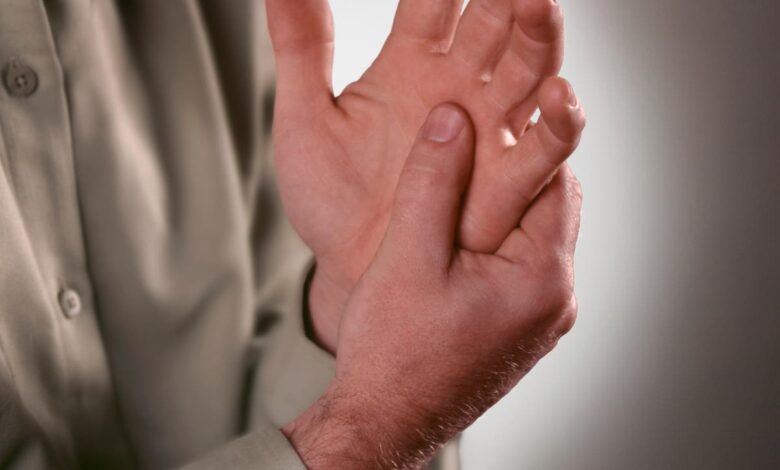Exercise instead of taking painkillers, arthritis sufferers told

People with arthritis are being urged to lose weight and exercise as the main therapies for their condition.
New NHS guidance from the National Institute for Health and Care Excellence (Nice) says people who are overweight should be told their pain can be reduced if they shed the pounds.
Meanwhile, aerobic exercise such as walking, as well as strength training, can ease symptoms and improve quality of life.
Starting exercise programmes may initially make the pain worse, but this should settle down, the guidance suggests.
The guidelines also gives recommendations on the use of medicines, such as offering non-steroidal anti-inflammatory drugs (NSAIDs) but not offering paracetamol, glucosamine or strong opioids.
Nice said there was a risk of addiction with strong opioids, while new evidence suggests little or no benefit for some medicines when it comes to quality of life and pain levels.
In the guidance, doctors are told to diagnose osteoarthritis – the most common form of arthritis – themselves without further investigation in people aged 45 or over who have activity-related joint pain.
Patients should also have no morning joint-related stiffness, or morning stiffness that lasts no longer than 30 minutes to be diagnosed this way.
The draft guideline says people can be offered tailored exercise programmes, with an explanation that “doing regular and consistent exercise, even though this may initially cause discomfort, will be beneficial for their joints”.
Exercising in the long-term also increases its benefits, the guideline adds.
When it comes to weight loss, people will be told that “any amount of weight loss is likely to be beneficial, but losing 10% of their body weight is likely to be better than 5%.”
People can also be referred for hip or knee replacement if their condition cannot be managed in other ways, and referrals should not be held off due to age, sex or obesity.
Dr Paul Chrisp, director for the centre for guidelines at Nice, said: “Osteoarthritis can cause people discomfort and prevent them from undertaking some of their normal daily activities.
“However, there is evidence which shows muscle strengthening and aerobic exercise can have an impact on not just managing the condition, but also providing people with an improved quality of life.
“Beginning that journey can be uncomfortable for some people at first, and they should be supported and provided with enough information to help them to manage their condition over a long period of time.
“Whilst topical and sometimes oral NSAIDs remain an important treatment option for osteoarthritis, we have taken the decision to not recommend some painkillers, such as paracetamol and some opioids for osteoarthritis.
“This is because new evidence has shown there was little or no benefit to people’s quality of life, pain or psychological distress and particularly in the case of strong opioids, there was evidence that they can cause harm in the longer term, including possible addiction.”
In the UK, more than 10 million people have arthritis or other, similar conditions that affect the joints.
The most affected areas are the knees, hips and small hand joints.
While we welcome the draft Nice guidelines, healthcare professionals need further resources and support to better understand their role in promoting treatment like physical activity for people with osteoarthritis





